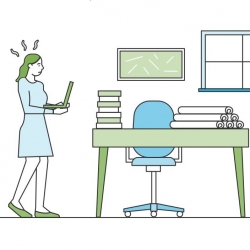To provide the best experiences, we use technologies like cookies to store and/or access device information. Consenting to these technologies will allow us to process data such as browsing behaviour or unique IDs on this site. Not consenting or withdrawing consent, may adversely affect certain features and functions.
The technical storage or access is strictly necessary for the legitimate purpose of enabling the use of a specific service explicitly requested by the subscriber or user, or for the sole purpose of carrying out the transmission of a communication over an electronic communications network.
The technical storage or access is necessary for the legitimate purpose of storing preferences that are not requested by the subscriber or user.
The technical storage or access that is used exclusively for statistical purposes.
The technical storage or access that is used exclusively for anonymous statistical purposes. Without a subpoena, voluntary compliance on the part of your Internet Service Provider, or additional records from a third party, information stored or retrieved for this purpose alone cannot usually be used to identify you.
The technical storage or access is required to create user profiles to send advertising, or to track the user on a website or across several websites for similar marketing purposes.
 A new poll from Unispace claims that around 72 percent of companies globally have now mandated a return to office based work. However, many respondents also report losing key employees due to mandates, with recruitment also being impacted by enforced returns. The report concludes that companies are failing to recognise the drivers of workers’ reluctance to return to the workplace, and likewise, the opportunities and value that the physical workplace provides. (more…)
A new poll from Unispace claims that around 72 percent of companies globally have now mandated a return to office based work. However, many respondents also report losing key employees due to mandates, with recruitment also being impacted by enforced returns. The report concludes that companies are failing to recognise the drivers of workers’ reluctance to return to the workplace, and likewise, the opportunities and value that the physical workplace provides. (more…)




































May 24, 2023
Hybrid working, work from anywhere and the evolution of the Third Place
by Chelsea Perino • Comment, Property, Workplace design